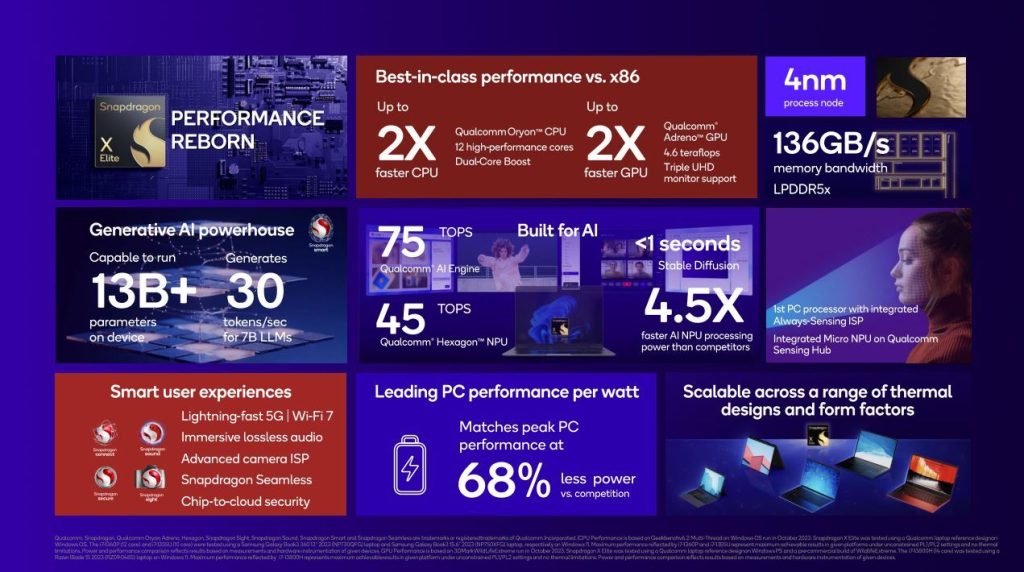Since 2016, Qualcomm has worked with Microsoft, supplying laptop processors capable of running Windows. Today at the Snapdragon Summit, Qualcomm unveiled the Snapdragon X Elite, a powerful new 12-core processor for PCs aiming to dethrone the competition.
The Snapdragon X Elite features a 4nm 12-core Qualcomm Oryon CPU, clocked at up to 3.8GHz with up to 4.3GHz dual-core boost speeds. It also features the new Qualcomm Adreno GPU, offering up to 4.6TFLOPS of graphics performance and support for 4K/120Hz displays, multiple 4K or 5K displays, HDR and upgradeable drivers.
Qualcomm is also working on its own Frame Motion Engine, enabling higher frame rates using AI to generate additional frames, similarly to DLSS 3 or FSR 3.
Another keen focus is the NPU, the Neural Processing Unit is designed to accelerate AI workloads, capable of running generative AI LLM models with over 13 billion parameters on-device. This will enable AI developers to work more efficiently, without needing to go through the cloud to access super computers.
Another impressive feat here is efficiency. In a pre-breifing, Qualcomm said that the Snapdragon X Elite can deliver twice as much performance as the closest competing laptop processor, while using up one third of the power. According to Qualcomm, a laptop with this processor should be capable of multi-day battery life on a single charge but that will obviously depend on hours of use and workload.
The first PCs powered by the Snapdragon X Elite are expected in mid-2024, so we will perhaps get a preview of some upcoming models at CES in January.
Discuss on our Facebook page, HERE.
KitGuru Says: What do you all think of the Snapdragon Elite X? While comparisons between Intel or AMD chips are interesting, I am also particularly interested in seeing how it performs up against an Apple M2 processor, as both utilise Arm rather than x86.
 KitGuru KitGuru.net – Tech News | Hardware News | Hardware Reviews | IOS | Mobile | Gaming | Graphics Cards
KitGuru KitGuru.net – Tech News | Hardware News | Hardware Reviews | IOS | Mobile | Gaming | Graphics Cards



